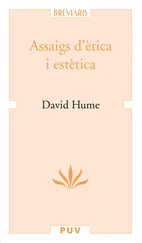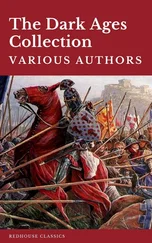Pagan patriots had no difficulty in solving the problem. “So long,” they said, “as the gods under whose favour Rome won her Empire were supreme, so long as the traditions of the ancient religion were preserved, our empire flourished and was impregnable. But now their temples are destroyed, impious hands have been laid on the altars, the worship of our divinities has been proclaimed a crime. And what is the result? Has the alien deity, who has usurped the time-honoured prerogatives, conducted the state to new glory or even to its old prosperity? On the contrary, the result of his supremacy is rapine and ruin. The Empire is inundated by a wild tide of rapacious savages, the dominions of Rome are at their mercy, her sword is broken, and her lofty walls have been scaled. These are the gifts that Constantine and the religion of Galilee, which he embraced in a disastrous hour, have bestowed upon the world.” 86
Similar arguments indeed had been urged long before. In the third century pagans had made Christianity answerable for plagues, droughts, and wars; nature herself, they cried, had changed, since the advent of this abominable religion. Two African divines had replied to the charge. Cyprian the bishop of Carthage declared 87that the disasters of his day were signs of the approaching end of the world, and the inference might be drawn that they did not much matter in view of the vast event so soon to happen. Arnobius of Sicca, half a century later, in his Seven Books against the Nations , met the arguments of the heathen by pointing out that before the appearance of Christianity the world had been the scene of as great or rather of greater calamities.
But in the early fifth century there was stuff for a more telling indictment, and one to which the average Christian of that age might find it hard to produce a convincing answer. And the Christian himself might have his own difficulties. How, he might wonder, is it compatible with a wise and just government of the universe that the godly who hold the right opinion concerning the nature of the Trinity should suffer all these horrors at the hands of barbarians, and that those barbarians who believe in a blasphemous heresy, which places them as much as the heathen outside the Christian pale, should triumph over us and wrest our provinces from us. 88
Such questionings evoked three books. Africa, Spain, and Gaul each contributed an answer, one a work of genius, the other two dull but remarkable each in its way.
The first, as it was the greatest, was Augustine’s City of God . Augustine had been deeply impressed by the capture of Rome by Alaric, and he recognised that the situation of the world called for a Christian explanation in reply to the criticisms of the pagans who made the new religion responsible for Rome’s misfortunes. The motive and occasion of the work, which seems to have outgrown its original scope, may account for some of its defects. 89It is one of the greatest efforts of Christian speculation, but the execution is not equal to the conception, and the fundamental conception itself was not original. The work consists of two distinct sections which might just as well have formed two independent treatises. The first section (Bks. I-X) is a polemic against pagan religion and pagan philosophies, in which it is shown that polytheism is not necessary to secure happiness either in this world or in the next. The most effective argument is that which had been already used by Arnobius: the miseries which we suffer to-day are no exception to the general course of experience, for we have only to read the history of Rome to find them paralleled or exceeded. The writer insists that earthly glory and prosperity are unnecessary for true happiness. These things were bestowed on Constantine the Great, but that was in order to prove that they are not incompatible with the life of a Christian. On the other hand, if the reign of Christian Jovian was shorter than that of the apostate Julian, and if Gratian was assassinated, these were divine intimations that glory and long life are not the true reward of the Christian faith. 90Such an argument was not likely to make much impression upon pagans.
But the answer of Augustine to the questions which were perplexing the world is not to be found in the first part of his work. He realised that any satisfactory solution of the problem must lie in discovering a harmony between the actual events of history and the general plan of the universe. The synthesis which he framed for the interpretation of history as part of a general scheme of things is an essay in that field of speculation which is known nowadays as the philosophy of history. It can hardly, however, be described as philosophical, for the premisses on which it is based are not derived from reason but from revelation. 91
Augustine’s conception is that the key to the history of the human race is to be found in the coexistence side by side of two cities or states which are radically opposed to each other in their natures, principles, and ends, the Civitas Dei and the Civitas Terrena. It may be observed that this conception was not original; Augustine derived it from his Donatist friend Tychonius. The origins of both these states go back to a time when man did not yet exist; the City of God was founded by the creation of the angels, the other city by the rebellion of the angels who fell. Since the sin of Adam the history of each of these cities, “intertwined and mutually mixed” ( perplexas quodam modo invicemque permixtas ), has been running its course. The vast majority of the human race have been and are citizens of the earthly city, of which the end is death. The minority who belong to the heavenly city are during their sojourn on earth merely foreigners or pilgrims (peregrini) in the earthly city. Till the conversion of the first Gentile to Christianity the members of the City of God belonged exclusively to the Hebrew race and its patriarchal ancestors; and Augustine determines the chief divisions of universal history by the great epochs of the biblical record: the Flood, Abraham, David, the Captivity, and the birth of Christ. 92This last event is the beginning of the sixth period, in which we are living at present; and the sixth period is the last. For the periods of history correspond to the days of Creation, and as God rested on the seventh day, so the seventh period will witness the triumph of the heavenly City and the eternal rest of its citizens. To the question how long will the sixth period last, Augustine replies that he does not know. 93In this connexion he tells us an interesting fact. An oracle was current among the pagans, and seems to have given them much consolation, that the Christian religion would disappear from the world at the end of 365 years. It was said that the disciple Peter had been able by his sorceries to impose upon the world the worship of Christ for this period, but at its termination the work of the wizard would dissolve like a dream. Augustine observes triumphantly, and perhaps with a certain relief, that more years than 365 had already elapsed since the Crucifixion, and that there was no sign of the fulfilment of the oracle. 94
To a modern, and possibly also to an ancient, inquirer, Augustine’s work would have been more interesting if he had seriously addressed himself to an historical study of the Babylonian and Roman Empires, which according to him were the two principal embodiments of the earthly City. But he entrenches himself and remains almost immovably fixed in his headquarters in Judaea, and the excursions which he makes into other regions are few and slight. Many of his notices of events in secular history are simply trivial.
Having completed his historical survey he devotes the last portion of his work to an exposition of the ultimate goal to which the world and the human race are travelling. He examines the question of the Last Judgment, expatiates on the fiery death which is the destiny of the earthly City, and ends with a discussion on the bliss which awaits the citizens of the City of God.
Читать дальше












